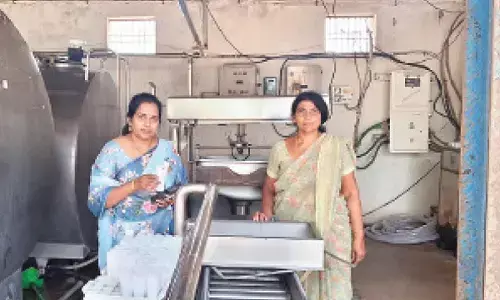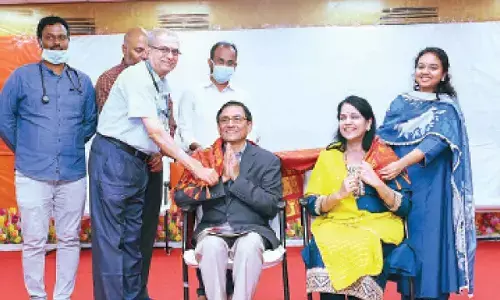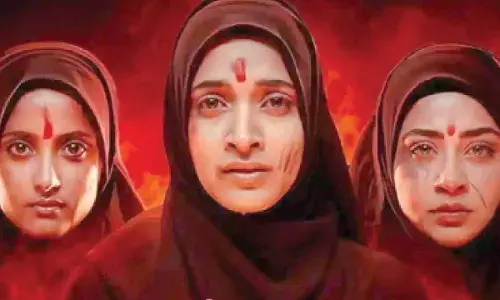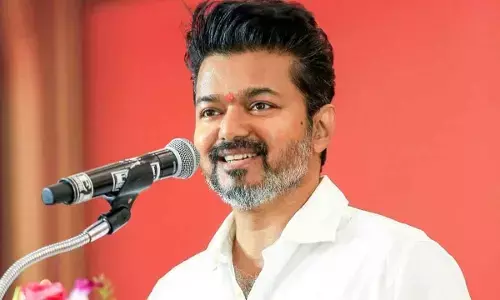Lighting father's pyre, Pankaja makes history

Lighting Father’s Pyre: Pankaja Makes History. There are several reports of ordinary women doing so, but they have been covered in the media as extraordinary events. One report from Indore talked about how \'people\'s eyes turned moist\' when they saw four girls bear the byre of their father and perform his last rites \'for the first time\' in the history of the city.
When Gopinath Munde was cremated at 2pm, his last rites were performed by his daughter and political heir, Pankaja Munde. When she lit her father's funeral pyre in front of the country's political elite, Pankaja Munde intentionally or unintentionally struck a huge blow for gender equality in India. Traditionally the last rites of a deceased person are always performed by a male member of the family.
And as multiple Bollywood movies will testify, this masculine obligation is the oldest reason to valourise the son in the traditional Hindu family, prompting a weeping filmi parent to wail, 'Who will perform my antim sanskaar (last rites)? Who will be my budhape ka sahara (support in my old age)?' In 2014, you no longer need a son to do either. Pankaja is certainly not the first Indian woman to perform the last rites of a parent.
There are several reports of ordinary women doing so, but they have been covered in the media as extraordinary events. One report from Indore talked about how 'people's eyes turned moist' when they saw four girls bear the byre of their father and perform his last rites 'for the first time' in the history of the city. Another from Ahmedabad also notes the 'break from Hindu tradition' in a daughter's insistence of performing the last rites of her father. "The relatives expressed their resentment on the issue but the daughters were adamant their decision. After a long discussion on the issue finally the relatives agreed", adds the report. The importance of the male relative performing the last rites comes from the Garuda puran, one of the eighteen Puranas which are part of the Hindu body of texts known as smriti.
.jpg)
The puran insists on the importance of the eldest son performing the funeral rites of the deceased. It does not mention a daughter's role although some scholars have noted that it does not expressly forbid them from doing so.
In everyday life, the prohibition on daughters is framed in terms of kinship. Once a daughter is 'given away' in marriage, she is no longer seen as part of the family. But even when she is unmarried or without a brother,tradition has favoured other male relatives, however distant, on the grounds that key religious duties must remain exclusively a masculine domain. Such notions however are slowly eroding in the face of the realities of modern life. As daughters are raised by parents like sons, they have taken on many of the same roles.
The father of the Delhi gangrape victim, for instance, borrowed money to educate his eldest daughter who took tuitions to help educate her brothers. She became the hope for social mobility for her impoverished family. "You know, I used to say, my daughter is the engine of the family. All of us were like bogies [carriages] yoked to the engine," he told BBC News. The average middle class family is strewn with numerous examples of daughters who become the bulwark for the parents, especially in old age and sickness -- a role that again was once reserved for the son.











